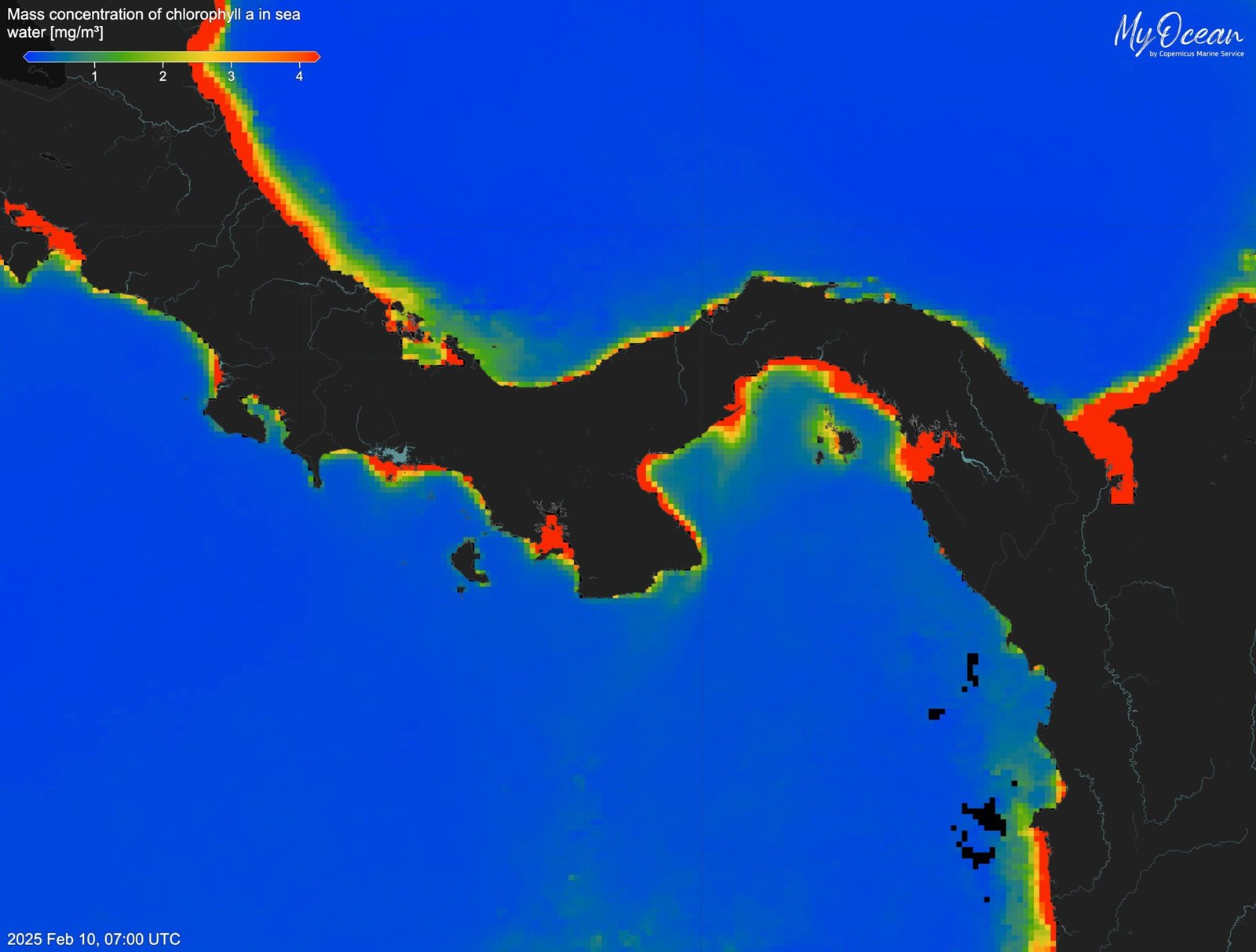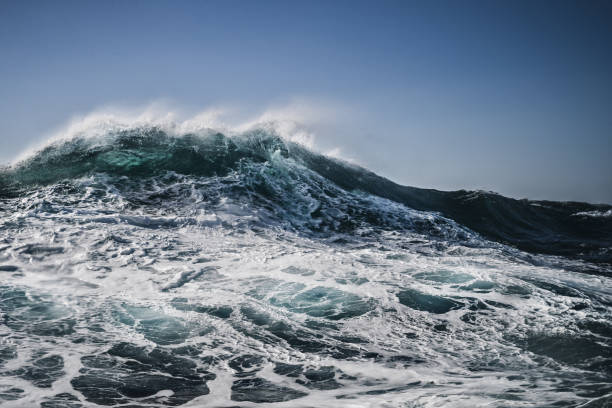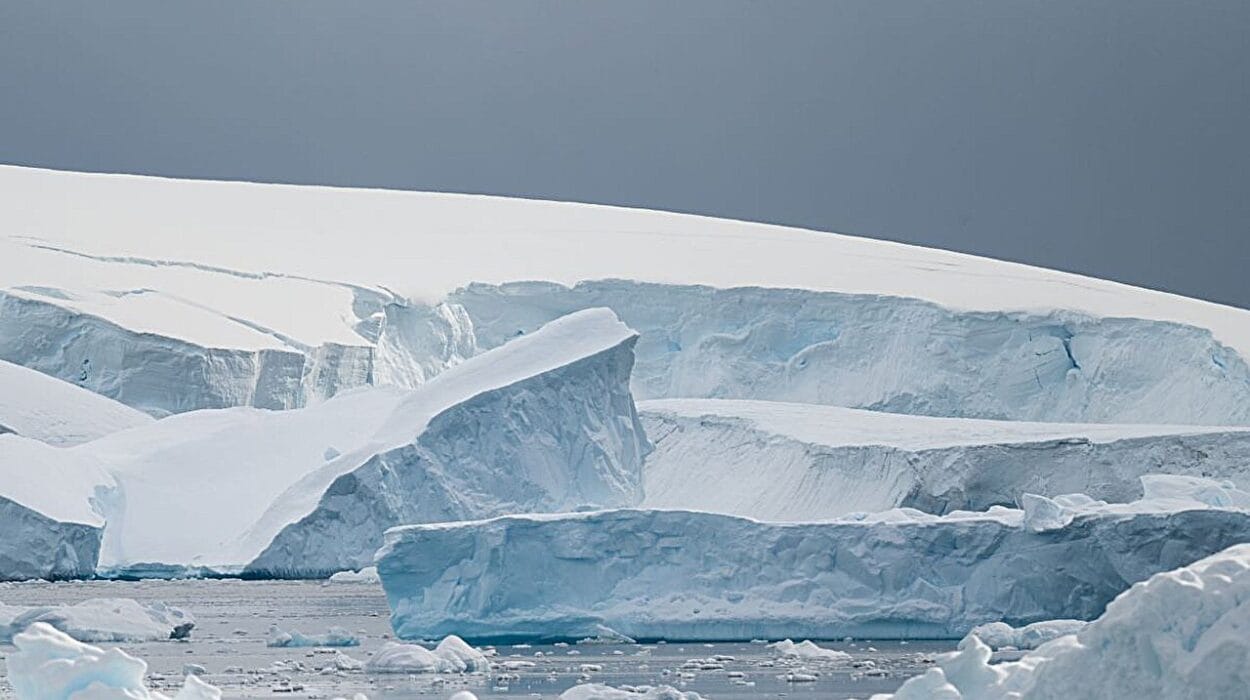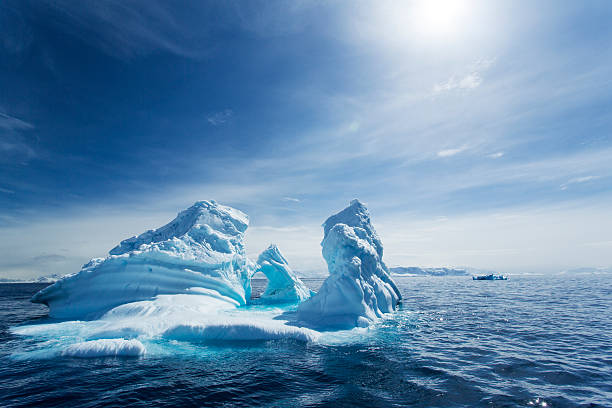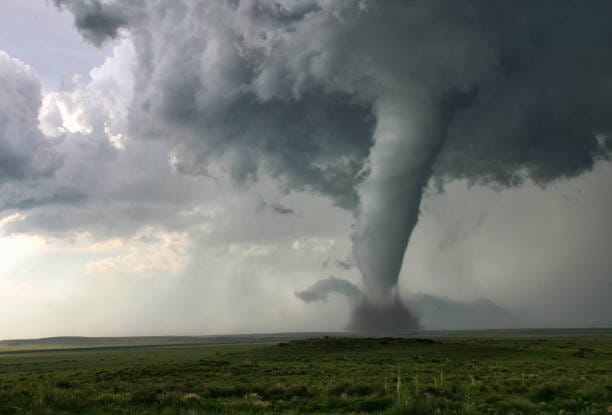For generations, the people living along Panama’s Pacific coast could rely on the sea’s rhythm as faithfully as the sunrise. Each year, between January and April, strong trade winds swept across the isthmus, stirring the ocean into a life-giving cycle known as upwelling. Cold, nutrient-rich waters rose from the deep, feeding fisheries, cooling the shoreline, and quietly protecting fragile coral reefs from heat.
But in 2025, something extraordinary—and deeply unsettling—happened. For the first time in recorded history, this annual event never came. The ocean held its breath, and a cycle that had defined the Gulf of Panama for decades simply stopped.
What Is Upwelling, and Why Does It Matter?
Upwelling is more than just a curious oceanographic term. It is the ocean’s hidden engine of productivity. When the trade winds blow steadily from the north, they push warm surface waters away, allowing cooler waters from the depths to rise. These deep waters carry nutrients—phosphates, nitrates, and other elements—that fuel explosive blooms of microscopic algae, the foundation of the marine food chain.
The results ripple outward in ways both ecological and human. Small fish thrive on the algae, larger fish feast on the smaller ones, and coastal fisheries provide food and livelihoods for thousands of families. Coral reefs, so often stressed by warming seas, find temporary relief as cool water buffers them against bleaching. Even local tourism benefits, since Panama’s Pacific beaches are refreshingly cool during the dry season.
In short, upwelling is not just a quirk of nature—it is a lifeline.
Forty Years of Consistency, Until Now
Scientists from the Smithsonian Tropical Research Institute (STRI) have studied this remarkable phenomenon for over four decades. Their records tell a story of consistency: each dry season, like clockwork, the waters cooled and productivity surged. Fishermen, marine biologists, and coastal residents could count on it.
That reliability made 2025 all the more shocking. For the first time in the record, upwelling simply didn’t happen. The waters remained warmer than expected, nutrient levels did not rise, and the usual spike in marine life productivity was absent. A seasonal certainty had become an uncertainty.
The Role of the Winds
So what broke this ancient rhythm? The STRI-led study points to the weakening of the trade winds. These winds, born from global atmospheric circulation, are the invisible hands that stir the ocean into motion. Without their strength, the surface waters of the Gulf of Panama stayed stubbornly in place, smothering the nutrient-rich waters below.
This discovery, published in the journal PNAS, highlights how vulnerable even the most dependable natural processes are to disruptions in the climate system. The trade winds, weakened perhaps by shifts in global weather patterns linked to climate change, failed to perform their seasonal role, and the consequences were immediate.
A Warning from the Tropics
The disappearance of Panama’s upwelling is more than a local story—it is a warning. Tropical upwelling systems, though less famous than those off California or Peru, sustain entire communities and ecosystems. Yet they remain poorly monitored, often overlooked in global climate discussions.
The failure of one season’s upwelling does not spell permanent collapse, but it raises urgent questions. Could this become more frequent as the climate continues to warm? What will it mean for fish populations, for coastal livelihoods, for coral reefs already under pressure? And most of all—how prepared are we to detect and respond to such shifts in time?
Human Lives at Stake
Behind the science are the people whose daily lives depend on the ocean’s rhythm. Fishermen who plan their catches around seasonal productivity. Families who rely on affordable local fish as a staple food. Small businesses that thrive on Panama’s coastal tourism.
When the upwelling fails, these communities feel it first. Fewer fish mean less income, higher prices, and greater economic stress. Warmer waters may also mean more coral bleaching events, undermining tourism and biodiversity alike. In a country where the ocean is both sustenance and culture, the stakes could not be higher.
A Call for Stronger Observation
The 2025 event underscores the urgent need for better monitoring of tropical oceans. While satellites and advanced models help scientists track global patterns, tropical regions often lack sustained, high-resolution observation. These gaps leave us vulnerable to surprises—shocks that may arrive too late for effective response.
The partnership between STRI and the Max Planck Institute’s research vessel, the S/Y Eugen Seibold, marks an important step forward. By combining global expertise with local knowledge, researchers are building the capacity to better predict and understand these events. But science needs long-term commitment, resources, and cooperation if it is to keep pace with a changing climate.
When Nature’s Certainties Become Fragile
What happened in the Gulf of Panama in 2025 is a reminder that even Earth’s most reliable systems are not guaranteed. Processes that once seemed timeless can falter under the weight of global disruption.
And yet, the story is not one of despair—it is one of awakening. We are being shown, in real time, the fragile threads that connect climate, ocean, and humanity. If we choose to listen, these disruptions can become lessons, urging us to prepare, adapt, and protect what remains.
Looking Ahead
Science cannot promise that upwelling will return next year with the same vigor, nor can it predict every twist in the climate story. But it can provide us with the tools to understand, adapt, and safeguard the communities and ecosystems most at risk.
The failure of upwelling in the Gulf of Panama is a wake-up call. The ocean is telling us something: that the balance we rely on is shifting. Whether we respond with indifference or with determination will shape not only the future of fisheries and coral reefs, but also our ability to live in harmony with a planet that is far more fragile—and far more interconnected—than we once believed.
More information: O’Dea, Aaron, Unprecedented suppression of Panama’s Pacific upwelling in 2025, Proceedings of the National Academy of Sciences (2025). DOI: 10.1073/pnas.2512056122. doi.org/10.1073/pnas.2512056122
